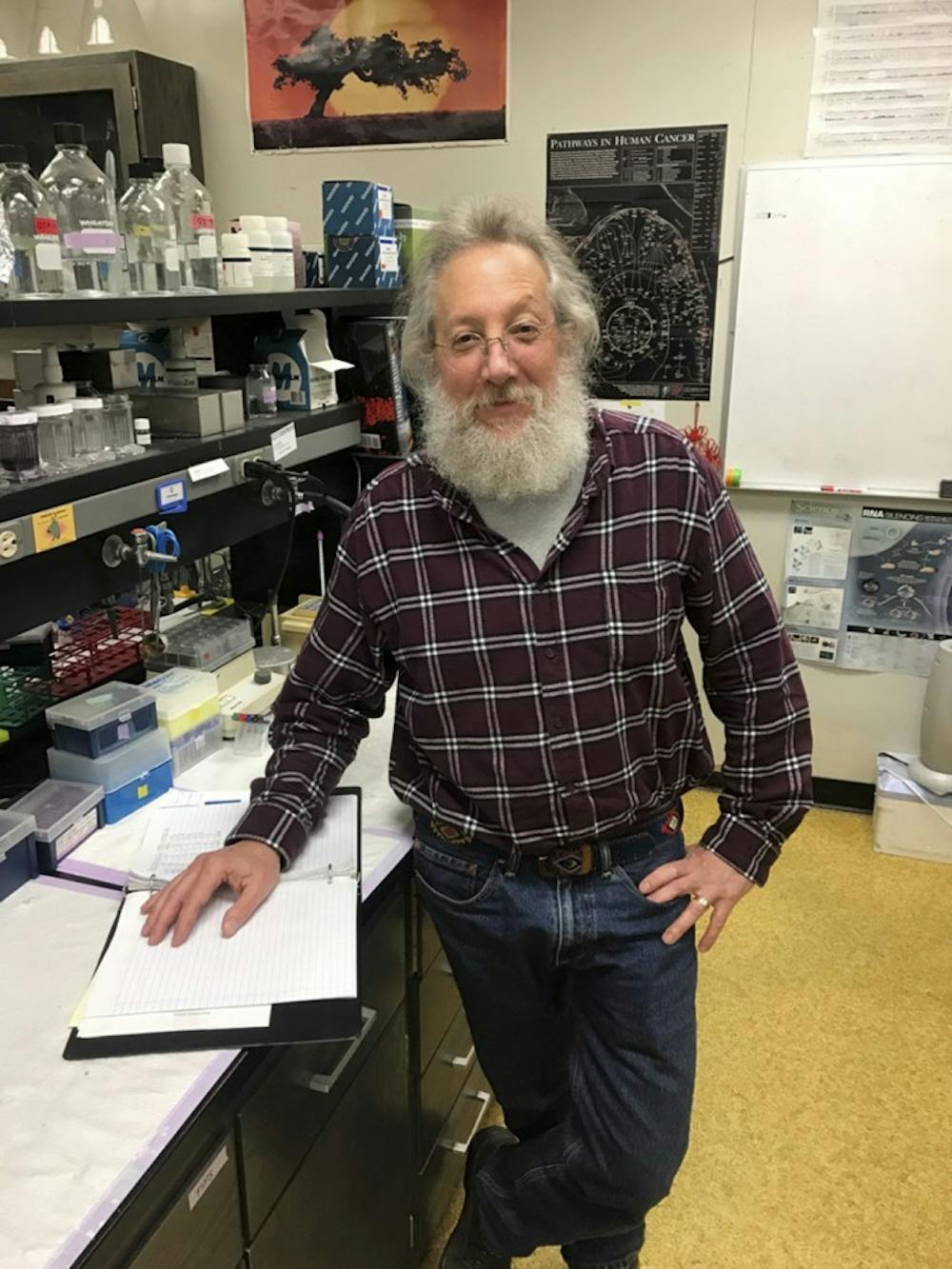As a winner of the Michael J. Mungo Distinguished Professor of the Year Award, Dr. David Reisman knows how to connect with students. Reisman teaches Cell and Molecular Biology and is the director of the Center for Colon Cancer Research Tissue Depository.Over the past 25 years at USC, he has had over 60 undergraduates work in his lab and is even collaborating with several of his former students on grants.
“I’ve seen a lot of people take ownership in the university ... [They] feel completely different about college than people who don’t have that experience,” Reisman said.
Reisman’s work focuses on Tumor Protein 53 (p53), a tumor suppressor gene that is mutated in over 50 percent of all human cancers. However, Reisman did not always work in the field of cancer biology. He began as an undergraduate at Illinois doing research on plant viruses, where he quickly became interested in human virology. At the University of Wisconsin, his graduate work focused on the Epstein-Barr Virus, which is responsible for infectious mononucleosis and in rare cases B-cell lymphoma.It was not until his postdoctoral work in 1986 that he began working on p53.
He was one of the earliest investigators of p53 — the gene’s popularity exploded amongst researchers in the early 1990s. “It was not the time to leave,” said Reisman with a smile, “and I’ve been studying it ever since.”
His passion for research comes from the lab interactions and working with groups of people to solve problems. He loves the thrill of going into the unknown and creating new knowledge. “You have to be a risk taker,” he says, “because ... you’re stepping into a territory where there’s nobody there to tell you, no you can’t do this, or this doesn't make sense.” He likens it to being a bit antiestablishment. “You can fail or you can succeed, but you’re jumping off of this precipice … it’s fun,” he said.
Reisman firmly believes that students should be working on projects that are meaningful and not just busy work. He has had students contribute enormous amounts to his research and they have been published in academic journals on numerous occasions.
Sydney Rapp, an undergraduate in the Reisman lab, was recently awarded the Magellan Scholar Grant and a biology department scholarship. She says that every time she reaches a new area of her research that may be unfamiliar to her, “[Reisman] thoroughly explains what we are doing and why, helping me to fully learn the science behind what we are doing.”
As she prepares to graduate this May, Rapp credits this regular interaction with Reisman for her confidence in being able to discuss her research with future employers.
“For me it has become an amazing learning experience and I feel blessed to have had the opportunity to work with Dr. Reisman," Rapp said.
His advice to students trying to get involved in research is to just jump right in. Whether that be a plant biology lab, a cancer biology lab or a mouse genetics lab, the technologies are similar and the questions are analogous. He says he usually takes students that he has gotten to know through his class or one of his advisees, but he stresses the importance of being persistent.
“If [somebody] comes by 3 times, it’s hard to say no that third time,” he said.

